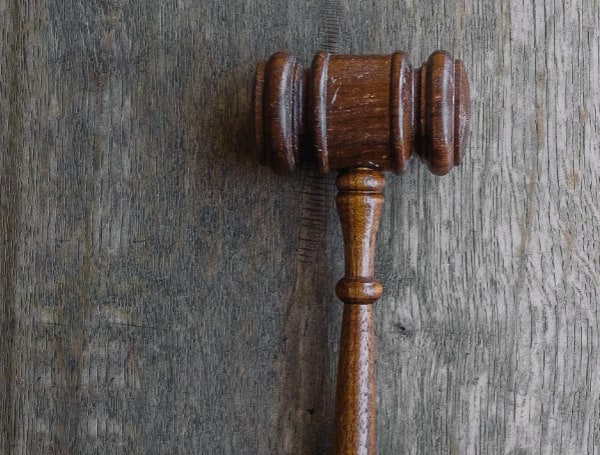Hawaii Supreme Court Justice Sabrina McKenna, one of the judges hearing Honolulu’s climate lawsuit against oil and gas companies, called climate change an “existential threat” during a recent university lecture.
McKenna spoke at the University of Colorado Boulder Law School on Oct. 26, calling climate change “the most important issue” facing courts and referencing recent tort litigation on climate issues, like the case her court is currently considering, as “groundbreaking.”
The Hawaii Supreme Court ruled Tuesday that Honolulu’s lawsuit against oil and gas companies, which alleges companies deceived the public about the dangers of fossil fuels and seeks damages to cover the cost of climate change, can proceed to trial.
“Climate change is, in my view, the most important issue facing all courts in the world,” McKenna said. “It is an existential threat.”
“The world is heating up. If we get to 3 degrees, most of Honolulu is going under water,” she said. “Miami is going under water. Rio de Janeiro is going under water. I think New Orleans … Bangladesh will become uninhabitable. There’s going to be hundreds of millions of people migrating, climate migration.”
“It’s an issue that everyone needs to address,” she said.
The Hawaii Supreme Court found in March that the state constitution contains a right to “a life-sustaining climate system.”
McKenna went on in her lecture to discuss recent climate-related claims that are making their way through state courts, calling the litigation “groundbreaking.”
“In terms of climate change and environmental rights, you have the [state] constitutions, you have statutory rights, you have regulatory rights, and another way of control is traditional tort litigation,” McKenna said. “Tort litigation is a method of regulatory control of things that harm people or our communities. There’s just a lot of groundbreaking litigation that’s happening now.”
“I can’t comment because we do have some pending cases on some of these issues,” she continued. “But I think, you know, these are issues that I believe more and more advocates will be raising.”
Honolulu’s climate case was brought under Hawaii’s tort law, which Chief Justice Mark Recktenwald wrote “specifically permits lawsuits to hold companies responsible for allegedly deceptive marketing claims about any product, including oil and gas products.”
“We decline to unduly limit Hawai‘i’s ability to use its police powers to protect its citizens from alleged deceptive marketing,” Recktenwald wrote in the court’s opinion, which denied energy companies’ request to dismiss the lawsuit. The Supreme Court declined to hear the lawsuit in April, pushing it back to the state court.
Recktenwald has worked with a D.C-based environmental group with close ties to attorneys for the plaintiff’s in the case. He disclosed on May 9 that he gave an educational presentation for a course offered in collaboration with the Environmental Law Institute (ELI), which co-founded an organization that works closely with individuals who have been employed by or consulted for the law firm representing Honolulu, Sher Edling LLP.
McKenna also spoke at a 2020 ELI symposium on “Judiciary And The Environmental Rule of Law: Adjudicating Our Future” with Recktenwald and former Hawaii Supreme Court Associate Justice Michael Wilson.
Wilson, who retired in March, recently called his former colleague’s decision to allow Honolulu’s case to proceed to trial “a groundbreaking decision of hope” and said there will be “a price tag put on the knowing poisoning of the atmosphere,” according to ExxonKnews. Wilson wrote earlier this year in his concurring opinion in the court’s decision finding a right to a life-sustaining climate that “we are facing a … climate emergency” and that the “lives of our children and future generations are at stake.”
Hawaii’s Revised Code of Judicial Conduct states that, “A judge shall not make any public statement that might reasonably be expected to affect the outcome or impair the fairness of a matter pending or impending in any court or make any nonpublic statement that might substantially interfere with a fair trial or hearing.”
McKenna did not respond to the Daily Caller News Foundation’s request for comment.
Android Users, Click To Download The Free Press App And Never Miss A Story. Follow Us On Facebook and Twitter. Signup for our free newsletter.
We can’t do this without your help; visit our GiveSendGo page and donate any dollar amount; every penny helps



